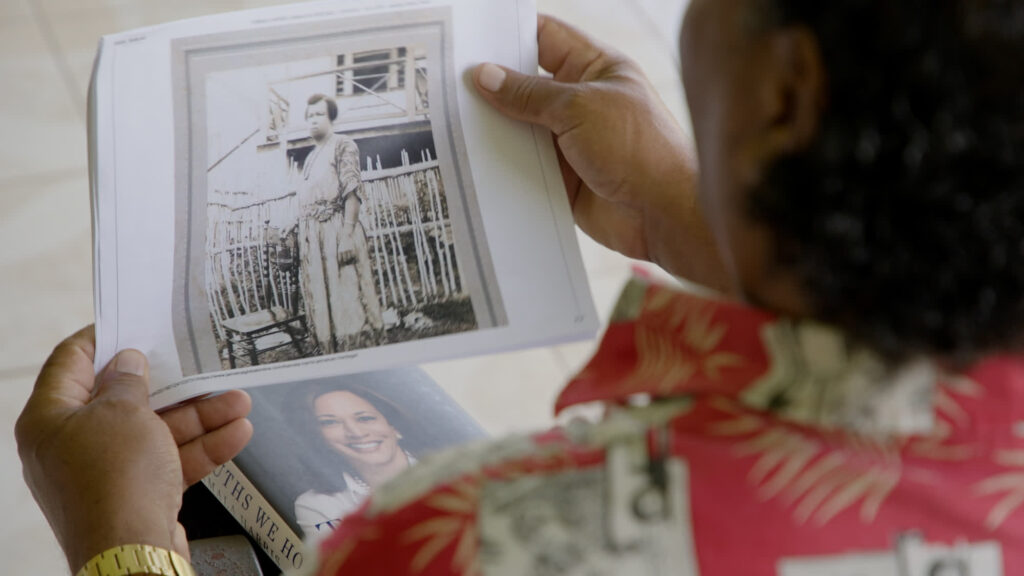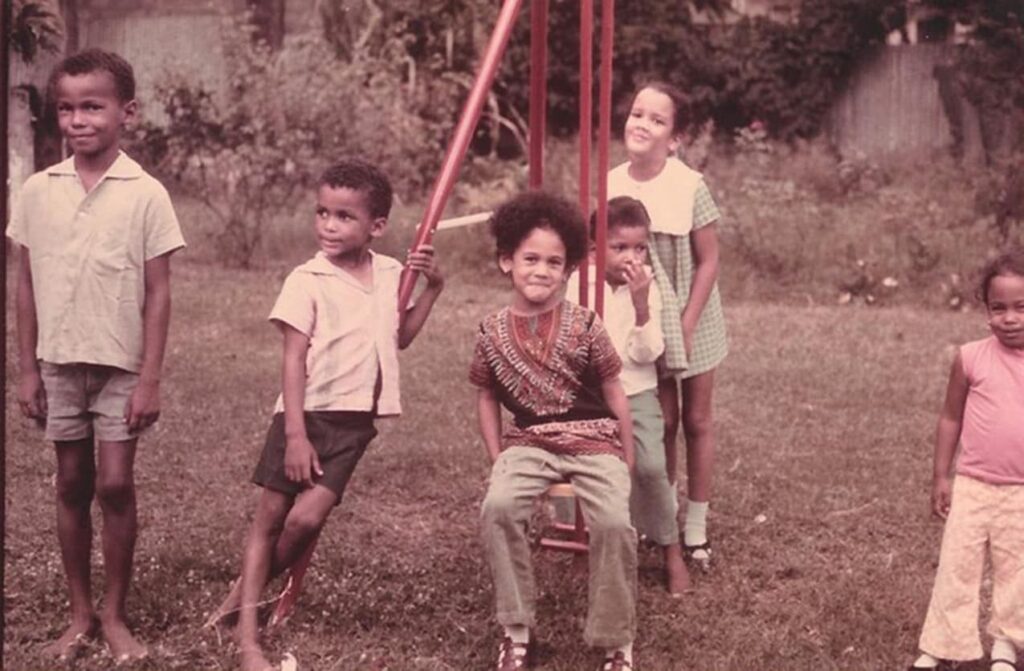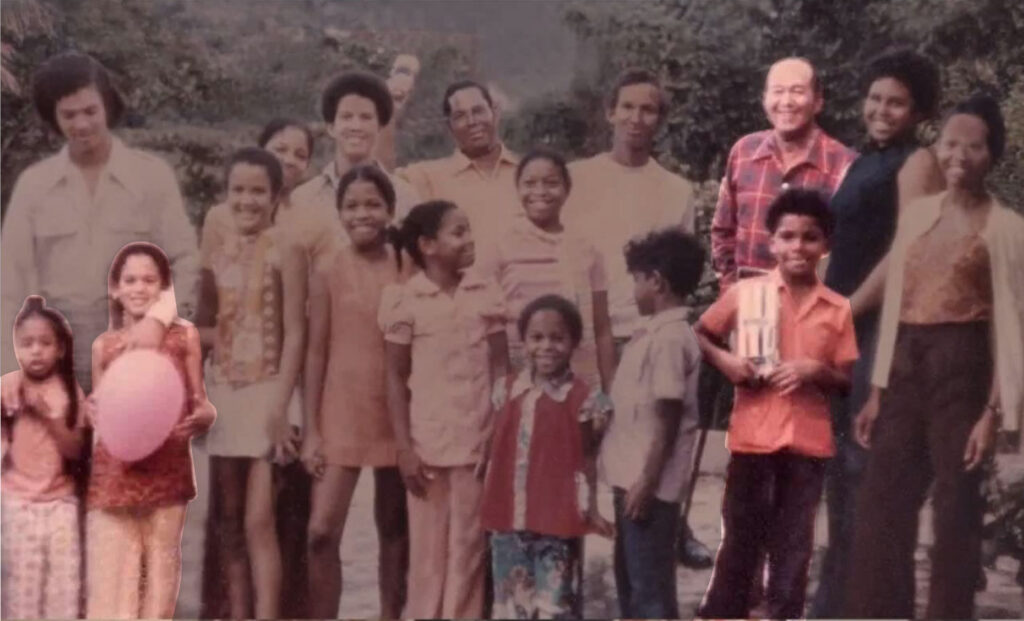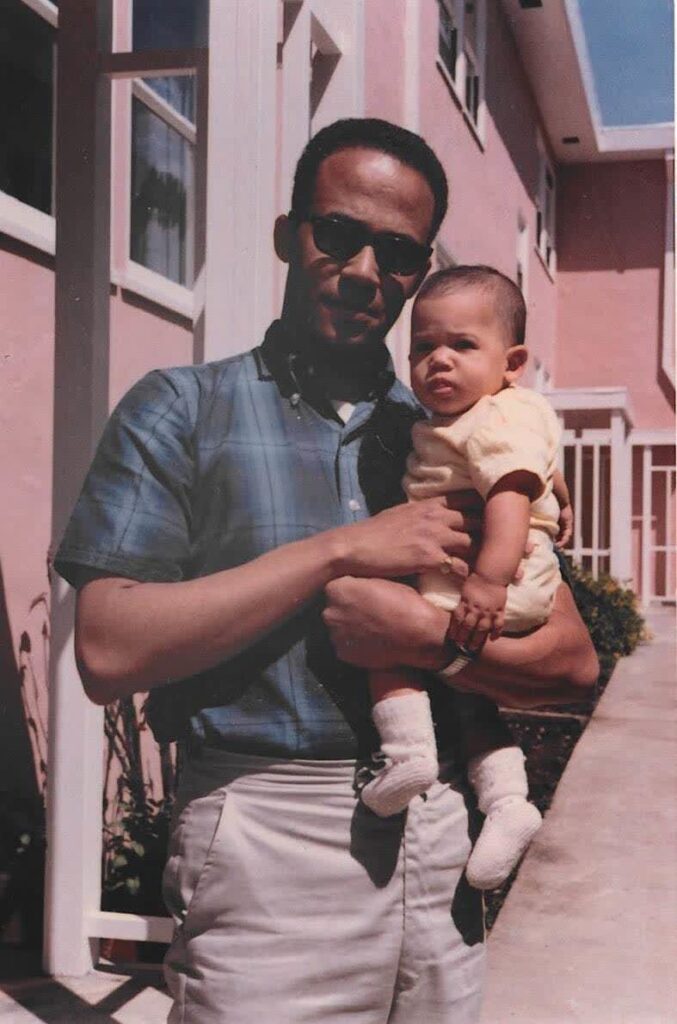BROWN’S TOWN, Jamaica — Three and a half years ago, Sherman Harris gathered together a clutch of family and friends at his home on a hilltop here in rural Jamaica to watch his cousin step into history.
As Kamala Harris took the oath of office as vice president of the United States, the room erupted in screams and tears, he recalled.
“Even talking to you now, I feel some sort of tears from my eyes too, you know,” Sherman Harris, 59, said in an interview with CNN. “It’s like tears of joy.”
This week, they will gather again before his widescreen television to watch Harris make history once more, when she formally accepts the Democratic presidential nomination — becoming the first Black woman, the first Jamaican American and the first Asian American to become a major party’s White House standard-bearer.
Although the milestone will be celebrated by her relatives in this town of some 12,000 people on the island’s northern coast, Harris’ Caribbean roots still are coming into focus for the millions of Americans getting acquainted with her after she was suddenly thrust to the top of the Democratic ticket a month ago when President Joe Biden ended his reelection bid and endorsed his vice president.
Already, her Republican rival, Donald Trump, has sought to question her Black identity as the two vie for support among African American voters in states such as Michigan and Georgia who could determine the outcome of this fall’s race. At a gathering of Black journalists last month, Trump falsely claimed that Harris had only recently opted to identify as Black out of political opportunism.
“I don’t know, is she Indian or is she Black?” Trump asked in widely derided comments.
Harris is both. She’s the daughter of an Indian-born mother, Shyamala Gopalan, a breast cancer researcher who died in 2009, and a Jamaican-born father, Donald Harris, an 85-year-old retired Stanford University economist, who has largely remained in the background of his daughter’s public life.
He hails from a family that stretches back for generations in Brown’s Town, a market town in St. Ann Parish, where vendors clustered along the main drag on a recent Sunday morning to sell glossy green avocados, yams and bundles of fragrant thyme.
“You have to recognize individuals who come from humble abodes and really excel,” said Michael Belnavis, the mayor of St. Ann Parish who is mulling ways to honor Harris should she prevail in November. “Coming from Brown’s Town is as humble as it gets.”

Deep roots and a powerful matriarch
The town was named after Hamilton Brown, a slave owner who came to the island from Ireland and, according to family lore, is believed to have been an ancestor of Kamala Harris’ great-grandmother, Christiana Brown, also a descendant of enslaved Jamaicans.
“Miss Chrishy,” as Christiana Brown was known, helped raise her grandson, Donald Harris, who described her in an essay first published in 2018 in the Jamaica Global Online as “reserved and stern in look, firm with ‘the strap’ but capable of the most endearing and genuine acts of love, affection, and care.”
Harris has said his interest in economics and politics was sparked, in part, by observing Miss Chrishy as she went about her daily routine of operating her dry goods store in Brown’s Town.
Although she died in 1951, Miss Chrishy looms large to this day among her descendants, who still talk of her elegant dresses, proper manners and the high standards she set for her children and grandchildren.
“She was the backbone,” said Latoya Harris-Ghartey, Sherman Harris’ 43-year-old daughter. Harris-Ghartey is executive director of Jamaica’s National Education Trust, a government-aligned organization focused on developing the island’s education infrastructure.
Her great-grandmother “believed in getting your books and having a solid education, those sorts of things,” Harris-Ghartey said. “I think that has passed on throughout the line. Everybody always pushes you to be better, to excel.”
Miss Chrishy had several children with Joseph Harris, who raised cattle and grew pimento berries — allspice in its dried form — on a farm perched high above Brown’s Town. He died in 1939, a year after Donald Harris was born, and is buried on the grounds of St. Mark’s Anglican Church — a sanctuary founded by Hamilton Brown and where Harrises have long worshipped.
Brown’s Town might be a small place, but the family has occupied a prominent position there as landowners and businesspeople.
Today, Sherman Harris — Donald Harris’ first cousin — still lives on and works the Harris land, in an area known as Orange Hill for a citrus grove that once stood there, he said. One of its dominant features is the Harris Quarry, started by Sherman Harris’ late father, Newton. Sherman runs it now, and it still produces crushed limestone and bricks.
It’s one of his ventures. On a tour with CNN journalists, he proudly pointed out the three-story commercial building he owns in the heart of Brown’s Town.
It’s to this landscape that Donald Harris would bring Kamala and her younger sister, Maya, on holidays, according to his 2018 essay — taking them through the town’s bustling marketplace, touring his primary school and other landmarks he found meaningful. He recounted the trio trekking through the cow pastures and overgrown paths on Orange Hill during one memorable visit in 1970, as they retraced his boyhood ramblings over the family property.
“Upon reaching the top of a little hill that opened much of that terrain to our full view, Kamala, ever the adventurous and assertive one, suddenly broke from the pack, leaving behind Maya the more cautious one, and took off like a gazelle in Serengeti, leaping over rocks and shrubs and fallen branches, in utter joy and unleashed curiosity, to explore that same enticing terrain,” he wrote. “I couldn’t help thinking there and then: What a moment of exciting rediscovery being handed over from one generation to another!”
Sherman Harris remembers all the cousins playing together during those jaunts to Jamaica in the 1970s, while the adults feasted and socialized. He and Kamala are the same age, born just days apart in October 1964.
What stands out most from those memories, he said, is how smart the girls were – just like their dad, who rose from a rural boyhood to earn a doctorate from the University of California, Berkeley and become the first Black economics professor granted tenure at Stanford.
“Brilliant girls,” Sherman Harris said of Kamala and Maya. Even as young children, they would quiz him on the island’s current affairs, and “I wasn’t able to answer them,” he recalled. “I had to ask Daddy.”
Sherman Harris views his cousin’s ascension as yet another example of “Jamaica to the world,” a reference to the island’s culture, reggae music and food catching fire across the globe. It’s also a sign to him of the Harris drive.
“We have never ventured in much failure, you know,” he said of the Harris clan, adding that the family members are “always successful in whatever we do.”

Out of the spotlight
Even as his daughter climbs to new heights, Donald Harris has remained largely out of the spotlight.
He and Shyamala Gopalan, who met in the 1960s as graduate students at Berkeley, fell in love fighting for civil rights, Kamala Harris wrote of her parents in her 2019 memoir, “The Truths We Hold: An American Journey.” But by the time she was 5, “they had stopped being kind to one another” and soon separated.
They divorced a few years later, and Gopalan became the parent who had the greatest influence in shaping her daughters’ lives, raising them, Kamala Harris wrote, to be “confident, proud black women” in a country that would see them, first and foremost, as African American. Kamala Harris would go on to attend one of the country’s most storied Historically Black Colleges and Universities, Howard University in Washington, DC, and pledge as an Alpha Kappa Alpha while there, joining the nation’s oldest Black sorority.
In her book, Harris “goes on for page after page about her mom,” said veteran California political reporter Dan Morain, who wrote a 2021 biography, “Kamala’s Way: An American Life,” that charted the Democrat’s rise through Golden State and national politics. “She’s really important in her life, and I believe her mother is still with her on a daily basis,” years after her death, he said.
“But she passes over her father,” Morain said.
Harris wrote that her father “remained a part of our lives” after the divorce, spending time with them on weekends and in the summer.
The senior Harris complained that his relationship with his daughters was subject to “arbitrary limits” after a contentious custody fight. The state of California, he wrote bitterly in the essay, operated on the “false assumption … that fathers cannot handle parenting (especially in the case of this father, ‘a neegroe from da eyelans’ was the Yankee stereotype, who might just end up eating his children for breakfast!)”
“Nevertheless, I persisted, never giving up on my love for my children or reneging on my responsibilities as their father,” he added.
Donald Harris did not respond to several interview requests from CNN and largely has shied away from publicity — even as his daughter stands on the cusp of another history-making milestone in his adopted country.
He did emerge publicly during Harris’ 2020 bid for the Democratic presidential nomination to publicly chastise her for joking that of course she had smoked marijuana, given her Jamaican background.
In a since-deleted statement posted on Jamaica Global Online, Donald Harris said his ancestors were “turning in their grave” to see their “family’s name, reputation and proud Jamaican identity” connected with a “fraudulent stereotype of a pot-smoking joy seeker.”
Damien King, a retired economics professor at the University of the West Indies in Jamaica who now runs a think tank on the island, first met the elder Harris in the mid-1980s and said he was not surprised by the public rebuke. “He is somebody who has always been unafraid to speak his mind,” King said.
And among the economists who know him, Harris is considered a free thinker, willing to challenge his field’s “orthodoxy,” King added.
Former Harris student Steven Fazzari, an economist who teaches at Washington University in St. Louis, described his former professor as someone who thinks “deeply about economic theory.”
“He’s not the kind of economist who’s going to talk to you about what the GDP is going to be and what inflation is going to be in the next quarter,” he said.
Harris, who served at Fazzari’s doctoral thesis adviser at Stanford, encouraged originality and was a friendly and supportive figure to his students, Fazzari added.
Fazzari had not seen Harris for years, until he and several other former students arranged a dinner with him last fall in Washington, where Harris maintains a residence.
“It was wonderful,” he said of the dinner. “Don Harris in his mid-80s is just like the Don Harris I knew at Stanford. He was articulate. He was gracious. He remembered all of us. He remembered all of our dissertation topics.”

‘That’s my cousin running’
Kamala Harris’ ancestry has already been thrust into the center of the presidential campaign, as Trump grapples with how to confront her last-minute candidacy and reaches for a strategy to blunt her momentum.
During a combative interview at the National Association of Black Journalists’ convention late last month, Trump went personal — falsely claiming that Harris had opted to “turn Black.” He later inexplicably called her “Kamabla” in series of posts on his Truth Social site.
Trump’s running mate, Ohio Sen. JD Vance, meanwhile, has questioned her authenticity — calling her a “phony” who “grew up in Canada,” a reference to the years she spent living in Montreal, where her mother had taken a teaching position at McGill University.
The mischaracterization of Harris’ racial identity “plays into these tropes of the tragic mulatto who’s doomed and sneaky and deceptive” and belongs nowhere, said Danielle Casarez Lemi, who studies race and ethnic politics as a Tower Center fellow at Southern Methodist University in Dallas. She’s also the co-author, alongside Nadia Brown, of “Sister Style: The Politics of Appearance for Black Women Political Elites.”
“It’s a way to try to damage her credibility anyway that he can,” she said of Trump. “Whether it’s going to work, who knows?”
Dahlia Walker-Huntington, a Jamaican American lawyer and longtime Harris supporter, called Trump’s comments challenging the vice president’s racial identity “condescending.”
“It is also ignorant to think that we can only have one identity” in a society that is increasingly multiracial and multicultural, said Walker-Huntington, who divides her time between South Florida and Kingston. “The America of 2024 is the America that Kamala Harris represents.”
Walker-Huntington said she has followed Harris’ career for years, going back to her time as a local prosecutor and California attorney general. She first met Harris at a Florida fundraiser in 2018 for Florida Sen. Bill Nelson’s campaign and would go on to become an enthusiastic backer of Harris’ short-lived presidential bid.

Young Kamala Harris with her Jamaican father in California
Now, along with other Caribbean American supporters, Walker-Huntington is activating networks of friends, relatives and acquaintances in the hopes of getting Harris over the top this time.
“I support her because she’s a strong woman, and she stands up for her convictions,” Walker-Huntington said. “The fact that she’s Jamaican, that’s icing on the cake. It makes me feel like that’s my cousin running for the presidency of the United States.”
CNN has reached out to the Harris campaign.
Those who know her say she celebrates her ties to the island to this day. On the eve of her swearing-in as vice president, Harris told The Washington Post that her father instilled in her and her sister a deep pride in Jamaica and its history. Walker-Huntington and Winston Barnes — an elected official in Miramar, Florida, who also hails from Jamaica — said she was quick to banter with a group of them in a Jamaican accent when they first met her at the Nelson event a few years ago.
The vice president’s cousin, Sherman Harris, said he has not seen her for years, but Donald Harris still visits with the family.
Jamaica has formally recognized Donald Harris, bestowing on him an Order of Merit in 2021 for “outstanding contribution to National Development.” Over the years, he has served as an economic adviser to the Jamaican government and helped craft a 2012 strategy to encourage economic growth on the island.
Back in Brown’s Town, there’s been talk of adding Kamala Harris’ visage to the mural of prominent Jamaicans that encircles the grounds of St. Mark’s, her cousin said. It currently includes figures such as sprinter Usain Bolt and Black nationalist leader Marcus Garvey, who was born in the parish.
But Belnavis, the mayor of St. Ann, said he is thinking bigger — a statue, perhaps, in or near a municipal building if Harris wins the US presidency.
“The murals that you see on the walls eventually will wear away and so on,” he said. “We want something more permanent.”
By FREDREKA SCHOUTEN, ZOE TODD, CURT MERRILL and BYRON MANLEY/CNN
Lead reporter Fredreka Schouten is a native of St. Croix, U.S. Virgin Islands
